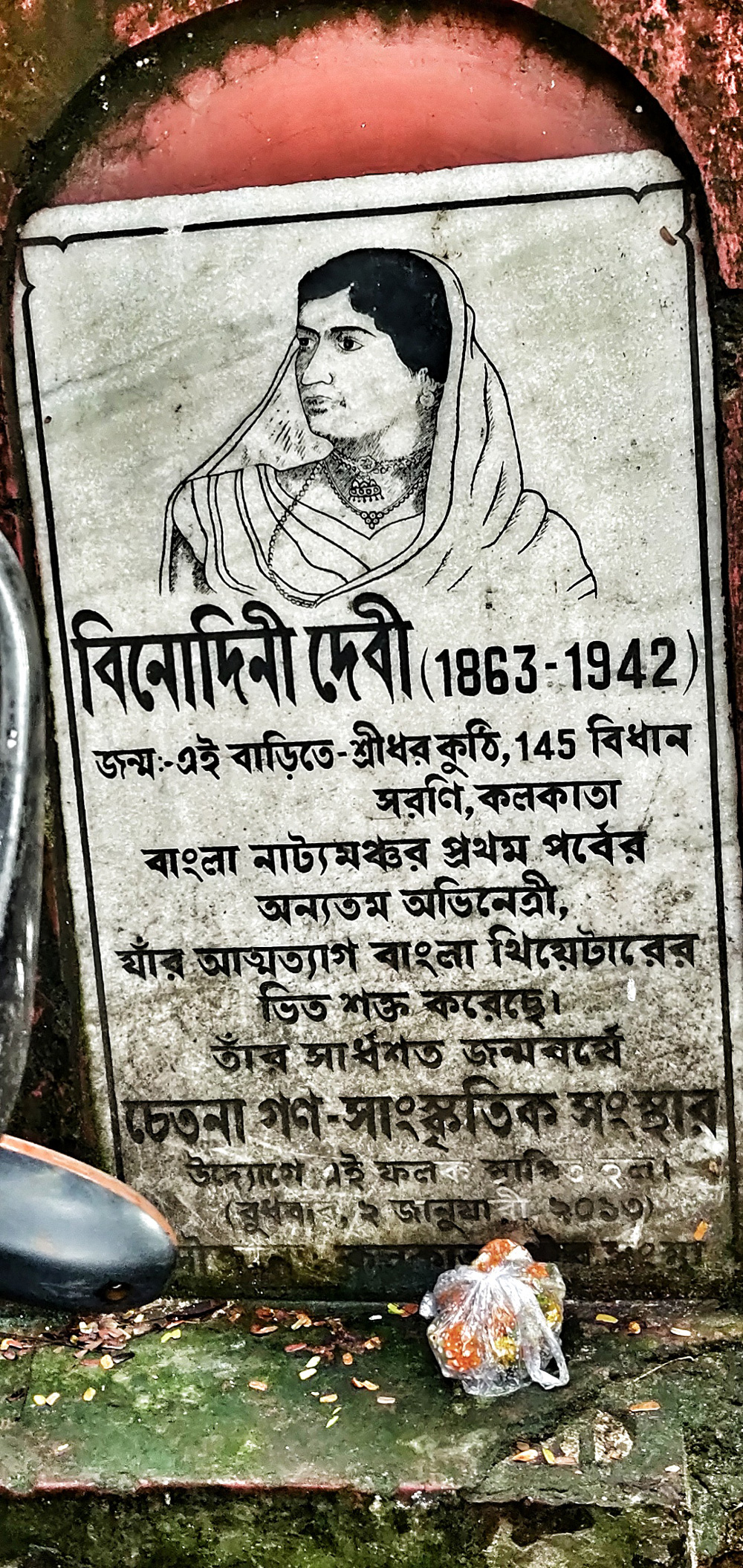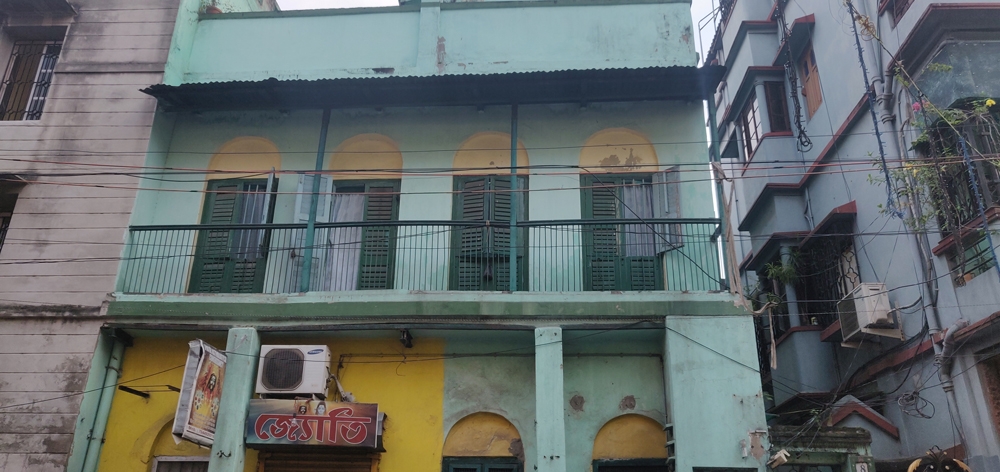19 Nov Finding Binodini Dasi
Delve in to the legacy of Bengal’s First Theatre Superstar
It was a bright winter morning, just perfect for a walk, which I was doing for documenting the heritage of Cornwallis Street (now Bidhan Sarani), when I stopped in my tracks on seeing a broken, crooked plaque perilously placed between the make shift stalls of the busy Hathibagan Market.
The plaque affirmed that Binodini Dasi, the prima donna of Calcutta’s theatre scene in the late 1800s, had spent her childhood here at 145 Cornwallis Street along with her grandmother, mother and younger brother.
 Remembering the amazing life of Bengal’s first superstar actress
Remembering the amazing life of Bengal’s first superstar actress
Binodini (1863-1942) had lived an amazing life, rising from poverty to become the brightest star on the Bengali stage at a time when theatre was still finding its feet in Kolkata. Being born out of wedlock in to a family of sex workers, she somehow managed from that start in life to battle through prejudice and discrimination becoming a leading social figure of her time.
While Binodini was still a small girl at this Cornwallis Street house, her family – which would let out rooms to supplement their income – received a tenant in Ganga Baiji, who was a singer-actress of the time. This was a lucky break for Binodini, as her Gangamoni took her along for rehearsals, teaching her music and acting, and she never looked back.
Binodini made her acting debut on stage when she was just 12 years old and quickly rose to the top. She would star in over 50 productions before calling it quits at the peak of her career when she was still only 23. During the 11 years that Binodini ruled Bengali theatre, she influenced so many changes; male actors essaying female characters on stage became a thing of the past, melodrama and exaggerated action became the much-popular style, and costume and make-up developed as integral parts of theatre.
This was also the age of rising nationalism and one of Binodini’s plays, “neel darpan”, a savage put-down on the brutality of the indigo trade, had led to much political hand-wringing by the colonial masters. The staging of the play contributed to an eventual ban on “seditious, defamatory, scandalous” plays through the specially-passed Dramatic Performances Act of 1876. In turn, this ban led to the rise of Hindu mythological texts which became hugely popular on stage.
 Binodini’s home still stands as a silent witness to the remarkable life lived within
Binodini’s home still stands as a silent witness to the remarkable life lived within
Perhaps Binodini Dasi’s best-known play was Chaitanya Leela, performed in 1885 when she was at the top of her game. Ramakrishna Paramhansa had himself come to view her performance in the role of Chaitanya and was moved enough to specially come on stage to bless Binodini.
A rousing public persona, a miserable private life
In sharp contrast to her glittering stage presence, Binodini had a wretched personal life, full of deceit and prejudice. She was never married, with none of the men in her life having the guts to do so. Perhaps nothing bought this home more than the saga of Star Theatre, the famous Kolkata theatre house that Binodini had played a lead-role in setting up.
When Star Theatre required financing, a local businessman Gurmukh Roy agreed to do so on the condition that Binodini becomes his mistress. In return, he apparently promised to name the theatre after Binodini. Shocking as this may seem in todays age, as per the times it was considered okay and Binodini was encouraged to comply. And, the sad part is that even this dream of having a theatre in her name was dashed by the very people who led her up this path; afraid that customers would not pay to attend a theatre named after a “fallen women” the place was named Star Theatre instead.
Disappointed by such dishonesty and exploitation, Binodini withdrew from the stage when she was still at her prime, being just 23. There were more heartaches to follow; she lost her only child, a daughter, who died at the young age of 12. Binodini poured her thoughts in to her autobiography, Amar Katha (the story of my life), published in 1913 and acclaimed to this day. She died in 1941.
So, what started out for me as a rambling research on Cornwallis Street and its residents had unearthed for me this gem ; the remarkable story of a lady who wanted much more than what contemporary society would give her, who was never allowed to forget her origins or her status as a mistress to patrons of theatre, even as she sought honor and respect in the world of acting. It is this that makes Binodini’s story stand out; that fact she was not a gentlewoman and had no formal education, but aspired for and reached the heights that she did.
Sources:
Reports from Telegraph India, Tribune India, Bangalpedia, Sahapedia
